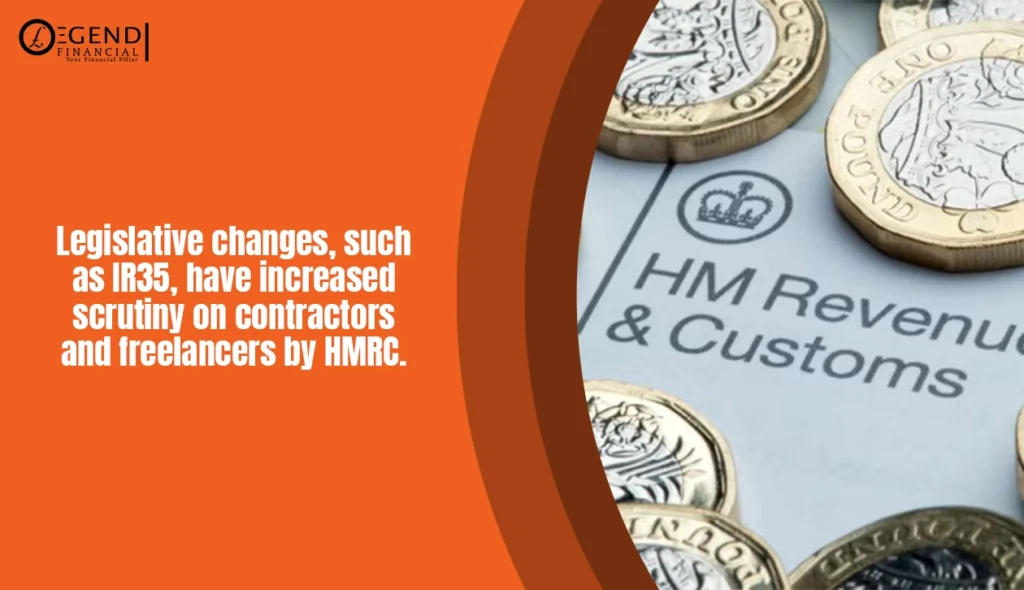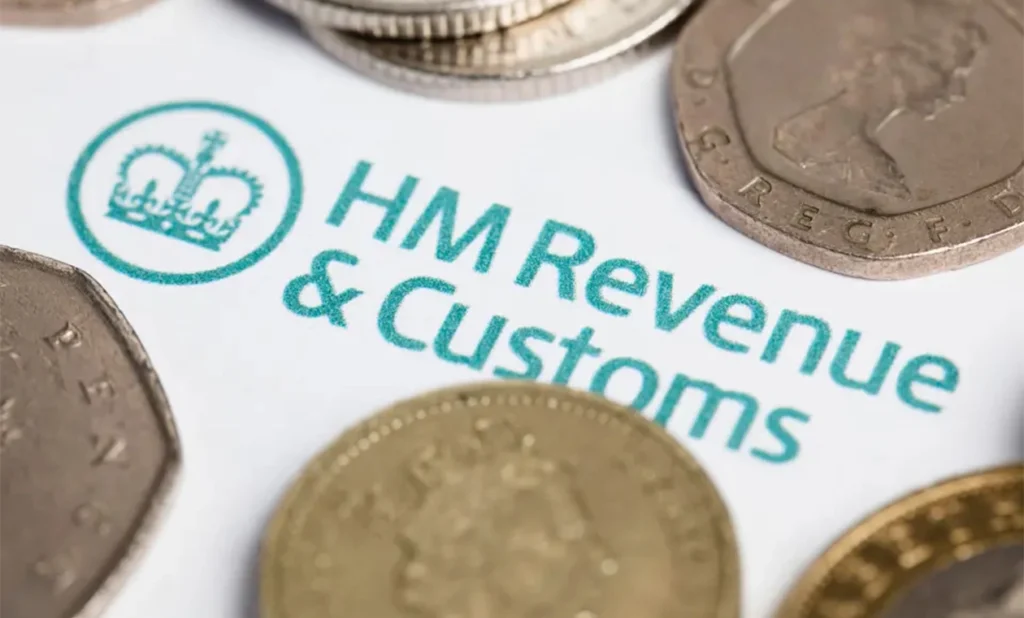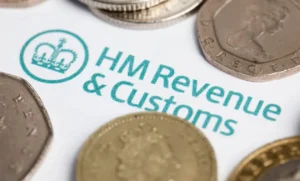Contents
HMRC’s tax investigations can be expensive, complex, and time-consuming. Even individuals and businesses with a good accounting team feel like they are caught off-guard in the unknown. For as long as one files tax returns, any discrepancy can be easily detected. As HMRC now has access to more third-party data, these investigations are becoming increasingly common.
This article will provide comprehensive support during this challenging process. We will also give you the best practices to keep in mind whilst preparing in 2025!
What Is HMRC Tax Investigation?
To put it simply, HMRC tax investigations are about taking a closer look at individual or business tax affairs, both historically and currently, to check if they are paying the right amount of taxes. Tax investigation may also be referred to as a tax audit, compliance check, or enquiry. Most of the time, these are triggered when the system detects frequent irregularities in your tax returns. However, it can also be random checks without a specific reason or suspicion. But no matter what has started the investigation, they can get really comprehensive.
Difference Between an Investigation and a Tax Audit
A tax audit is usually a more routine check of your tax return. A tax investigation, on the other hand, is a broader and more serious enquiry into your tax affairs, usually triggered by suspected wrongdoing or inconsistencies. An audit might lead to an investigation if some serious issues are uncovered.
What Can Trigger this Investigation?
Listed below are the factors that can increase the likelihood of an HMRC investigation:
- Irregularities in tax returns
- Unusually large claims
- Frequent late filings and errors
- Unusual financial figures
- Disproportionate tax liabilities
- Use of tax avoidance schemes
- Benefit fraud
- Vat compliance issues
- Cryptocurrency transactions
- Research and development (R&D) tax credits
- Consistently reporting losses
- Operating in a high-risk industry
- Sector-focused investigations
- Generating property income
- Offshore bank accounts
- Tip-offs to HMRC
Accuracy in tax filing and maintaining proper records can help reduce the risk of an HMRC investigation.
Types of Investigations by HMRC
HMRC conducts different types of tax investigations. These are decided based on the level of risk and suspicion involved. Some enquiries focus on specific discrepancies, whilst others can take a deeper dive into a company’s financial records.
Full Enquiry
A full enquiry is HMRC’s most thorough investigation. It is launched when they suspect major errors in a business’s tax return. If your company is under review, they may also examine the personal tax affairs of directors. These investigations can take a year or longer, depending on the complexity and amount of paperwork involved.
Aspect Enquiry
An aspect enquiry is more targeted, focusing on specific areas of a tax return where HMRC has spotted inconsistencies. These are usually the result of accidental mistakes rather than deliberate tax evasion. Whilst less extensive than a full enquiry, it is still important to take it seriously. Most aspect enquiries wrap up within 3 to 6 months.
Random Check
Random checks happen without any specific issue. Your business could be chosen entirely by chance, regardless of how good your records are. The duration of these checks varies. They can be resolved in a few weeks or stretched over a few years.
VAT Investigations
If your business is VAT-registered, HMRC may investigate if they suspect errors or VAT fraud in your returns. They also check businesses that should be registered but are not. During the process, officers will review your records, transactions, and VAT filings to make sure everything is accurate and compliant.
Specialist Investigations (for criminal matters)
HMRC conducts specialist investigations when they suspect serious tax offenses, like deliberate concealment, fraud, corruption, money laundering, or forged documents. A “Code of Practice 9” notice signals a criminal investigation. Although convictions are rare (often resulting in fines or repayment), specialist investigations are more complex and have high stakes.
How Do I Know That I am Being Investigated?
Under any circumstances, HMRC is obliged to notify you when they start any type of tax investigation. This letter will explain which tax years are being reviewed and how much time you have for preparation. You or your tax accountant will have a maximum of 35 days to respond to that letter in writing.

Taxes Subject to HMRC Compliance Checks
HMRC can review the following aspects of your tax affairs to ensure compliance, including:
- Any taxes you pay
- Business accounts and tax calculations
- Self-assessment tax returns
- Corporate tax returns
- PAYE records and filings (if you employ staff)
5 Stages of Tax Investigation
Generally, the flow of HMRC’s tax investigations is as follows:
1. Opening Tax Investigation
HMRC may contact you with questions about your tax return within 12 months of filing. This initial contact does not automatically lead to a formal investigation. A formal investigation begins with a written HMRC investigation letter (or sometimes a phone call). You can pursue alternative dispute resolution (ADR) at any point if you disagree with HMRC’s decision.
2. Document Submission & Review
In this step, specific documents relevant to the investigation will be requested. These can include bank statements, invoices, VAT records, correspondence, and more. They can also demand access to your personal bank accounts (even if they seem unrelated to your business), business records, and even digital devices.
3. Interviews & Further Examination
Based on the submitted documents, HMRC may request an interview to clarify inconsistencies or gather more information. They will issue a decision notice outlining their findings. At this stage, if taxpayers disagree with the outcome, they have 30 days to file an appeal or complaint. Having expert representation can be crucial during this phase.
4. Assessment & Penalties
HMRC will assess whether any tax has been underpaid, overpaid, or if further penalties are applicable.
The outcomes of an investigation depend on HMRC’s findings. Common outcomes include:
- No further action: If there are no discrepancies, HMRC will close the investigation.
- Overpaid tax: Taxpayer receives a refund with interest.
- Underpaid tax: Taxpayer is required to settle the owed tax within 30 days, potentially with added interest.
- Minor discrepancies: Non-deliberate, honest mistakes will result in lighter penalties.
- Deliberate wrongdoing: If the investigation reveals deliberate misconduct, you will get heftier penalties and, possibly, a criminal investigation will be opened.
5. Resolution
The conclusion of a tax investigation is officially marked by both parties coming to a contract settlement. If an agreement cannot be reached, the case may escalate to a tax tribunal or court.
Facing penalties on your CIS tax returns? Learn how to brave the ordeal with ease using our guide!
How to Prepare for Future Investigations
Whilst there is no way to prevent HMRC’s random checks, businesses can take proactive measures to lower their likelihood and mitigate their costs.
Here is how to stay prepared:
1. Maintain Accurate and Up-to-Date Records
Well-organised records of income, expenses, invoices, and transactions are your best defense against an investigation. Accurate bookkeeping prevents errors and lets you respond quickly to any HMRC enquiries. Using tax software like QuickBooks can help automate this process.
2. File Your Tax Returns on Time
Late or missed tax returns are one of the biggest red flags for HMRC. Always meet deadlines to avoid unnecessary scrutiny and potential penalties.
3. Work with a Professional Accountant
Hiring an accountant from Legend Financial ensures that your tax returns are always accurate, claims are legitimate, and potential errors are avoided. Our expert accountants also stay updated on tax law changes to keep your business compliant.
4. Recheck for Basic Errors
Incorrect VAT calculations, misclassified expenses, or reporting non-deductible costs as deductible can all trigger an investigation. By regularly reviewing your accounts, you can catch and correct these mistakes early.
5. Steer Clear of Tax Avoidance Schemes
If a tax-saving strategy sounds too good to be true, it probably is. Engaging in aggressive tax avoidance can attract unwanted attention from HMRC. Always seek professional advice before making financial decisions.
6. Be Transparent About Unusual Transactions
If your tax return includes irregular financial activity, like unusually high deductions or large one-time expenses, it is up to you to correct it. This reduces the likelihood of HMRC suspecting wrongdoing.
7. Be Mindful of Public Financial Statements
HMRC cross-references tax returns with publicly available information, including social media. Ensure any financial claims you make online align with your reported figures to avoid raising red flags.
FAQs About HMRC’s Tax Investigations
What is the HMRC tax investigation time limit?
HMRC can investigate past tax returns for up to 4 years for genuine mistakes, 6 years for carelessness, and 20 years for deliberate tax evasion. The timeframe starts from the end of the tax year in question.
What happens in an HMRC personal tax investigation?
An HMRC personal tax investigation examines an individual’s income, expenses, self-assessment returns, or undeclared earnings.
To what extent can HMRC enquire into previous tax years during an investigation?
HMRC usually reviews records from the past four years, but if serious discrepancies or tax evasion are suspected, they can extend this to up to twenty years. The scope and length of the investigation depend on the severity of the case.
What are my chances of being investigated randomly by HMRC?
HMRC mainly focuses on high-risk cases or those flagged by automated systems that can detect discrepancies in tax returns. But even if you have not done anything wrong, maintaining accurate records and filing returns on time is essential.
Get Expert Representation with Legend Financial
Handling HMRC’s tax investigations without proper representation can quickly turn into a downward spiral of more problems. At Legend Financial, our experts make sure that your rights are protected, your case is handled efficiently, and any misunderstandings are addressed promptly. Not only that, but we also provide year-round tax planning and support, so you are always prepared when the inevitable compliance check happens. Reach out to us today!












